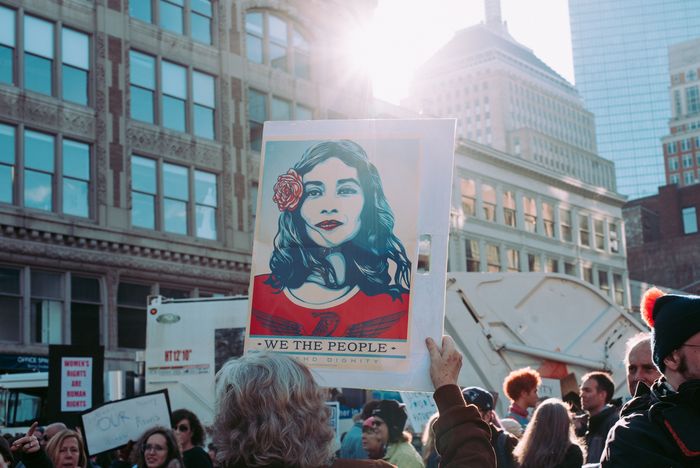Women are predominant in tourism employment: they carry out 54% of all formal tourism activities worldwide, their number in informal employment considered even much higher. In developing countries the share of female workers in the travel industry is even as high as three quarters. However, the pandemic has revealed structural inequalities hitting especially these women like a boomerang.
Easy money at high cost
The tourism industry offers promising labour opportunities to women and youth. With its often flexible working conditions and easy access to jobs, it especially attracts people with low formal skills promising fast money. However, as easy as the entry to the tourism labour market is to women, as low are the payrolls. Women are still poorly represented at higher professional levels and obtain a large share of low paid jobs, weak labour rights and poor working conditions. Also, the share of women performing unpaid work remains high, especially in family tourism businesses. This makes them particularly vulnerable to the severe economic effects of the pandemic.
“The majority of low-skilled, casual, seasonal and informal workers at the lowest rung of the career ladder in the tourism sector are women. Due to their precarious occupations, women have less access to state welfare and health care“, says Dr. Angela Kalisch, Chair at Equality in Tourism. “While their male colleagues are more likely to obtain the few remaining permanent positions that can be moved to remote working, many women have lost their jobs and are now facing poverty. Their low-skilled working profile doesn’t allow them to diversify workwise, so most of them haven’t been able to find an alternative occupation during the lockdown of the tourism industry.”
But also women who are not out of work are facing severe problems now. The fall in incomes due to job losses and business closures in tourism entails a higher vulnerability to poverty for females. Men are more resilient to economic shocks as they have a wider range of coping mechanisms such as easier access to finance, more income resulting in more pension or social aid when they are out of work and less responsibilities at home. Grandparents and parents, who are especially vulnerable to the virus, cannot help out with the burden of domestic workload anymore, which now must be handled by mothers and wives all alone. At the same time traditional working fields of women in tourism, such as housekeeping, are affected by new sanitization and hygiene standards putting additional pressure and time constraints on them.
Time to act!
Many developing countries are highly dependent on small and micro enterprises keeping tourism flourishing. Many of those are run by women. Female entrepreneurship is much more likely in tourism than in any other sector. While this is generally a good thing in terms of empowerment and equality, many women lack access to credits or economic stimulus packages, which puts their business at higher risk in extraordinary situations like the COVID-19 pandemic than their competitors.
Angela Kalisch calls for governments to shift away the worst impacts for women in tourism: “In the long run, we need a gender-just Human Rights approach to tourism, intersectional data, and a stronger inclusion of women in policy making. With more women taking part in shaping the post COVID-19 recovery, it will be more likely to meet the needs of vulnerable groups and improve resilience to future shocks. In the short term, female entrepreneurs, employees but especially informal workers need easy access to financial support, including state aid, credit, debt relief. This includes training for low-skilled workers to enable diversification and alleviate over-dependence on tourism.” Measures should especially comprehend capacity-building in digital, technical, communications and marketing skills. They play a crucial role for women and vulnerable people working in tourism during the pandemic, and also increase their career prospects in other sectors. It therefore is crucial to provide access to learning platforms, retraining opportunities and mentoring, and experience exchange, such as online seminars, online conversations, group chats or one-to-one dialogue with peers.
Celebrating women in tourism
In South Africa female workers are leading the charge with 70% of the tourism workforce. As part of the ‘Women’s Month’, the initiative #Iamtourism was launched by tourism body „Travel to South Africa“ to showcase and celebrate women in tourism. For Tourism Watch, author Lea Thin has reached out to find women in tourism who have coped to COVID-19 although all travel activities in their countries were paused:
„New job opportunities in other sectors are rare“, Luisa, Colombia
Luisa is a tour guide and manages tourism projects for peace building in Colombia. She is also co-founder of an NGO that empowers communities affected by the Colombian armed conflict to find new economic opportunities through tourism activities. She used the time of the pandemic to strengthen the organization’s digital presence and further developed her projects remotely from home. This was sometimes challenging, as the communities she works with usually don’t have access to a stable Internet connection that allows them to be 100% connected.
Luisa was able to cope pretty well to the lockdown as her NGO had an established budget for the first half of the year. However, the sources of income from tourism activities are fundamental so times will become more difficult if the pandemic continues. For her female colleagues, who are usually in a less privileged situation, she is already observing difficulties: “As there are still very few females in management positions in the Colombian tourism sector, they face bigger challenges to find new job opportunities while all tourism activities are paused.”
„I love what I do and it’s amazing how our industry has rallied together“, Gwen, South Africa
Gwen is a marketing and PR manager for a Destination Management Company in South Africa. Since the strict South African lockdown in March, she has been working from home with daily digital meetings. However, the company has reduced hours and remuneration due to no business coming in but as a result was able to keep its staff. As local tourism is still closed, the company is now promoting other destinations that are already open – such as East Africa.
Due to her company’s strategy Gwen was able to keep her job. Also, she received support from the state, as not everyone has. She considers herself very lucky: “The industry has been so badly affected by the pandemic that many people have lost their jobs, now flooding the tourism labour market. I would most likely need to look for a job in another sector if I were out of work.”
„I will work in tourism as long as diving exists“ Maneesa, Thailand
Maneesa is working for a Diving Resort on Koh Tao, a tropical island located in the south gulf of Thailand. Due to the lockdown, her workplace closed from April to July. Maneesa therefore received a small compensation from the government for this three-month period, but also was lucky enough to grow up in a farmer’s family. Therefore she was able to quickly find an interim occupation on the farm of her aunt where she grew vegetables and fruits and sold them online.
But Maneesa never had a doubt to return to the tourism industry. While her office was closed, she was promoting the diving activities online to keep the business alive. She now is back at work. Luckily the diving business was able to switch the focus on Thai costumers instead of Westerners. So the July was already fully booked for diving in every weekend.





